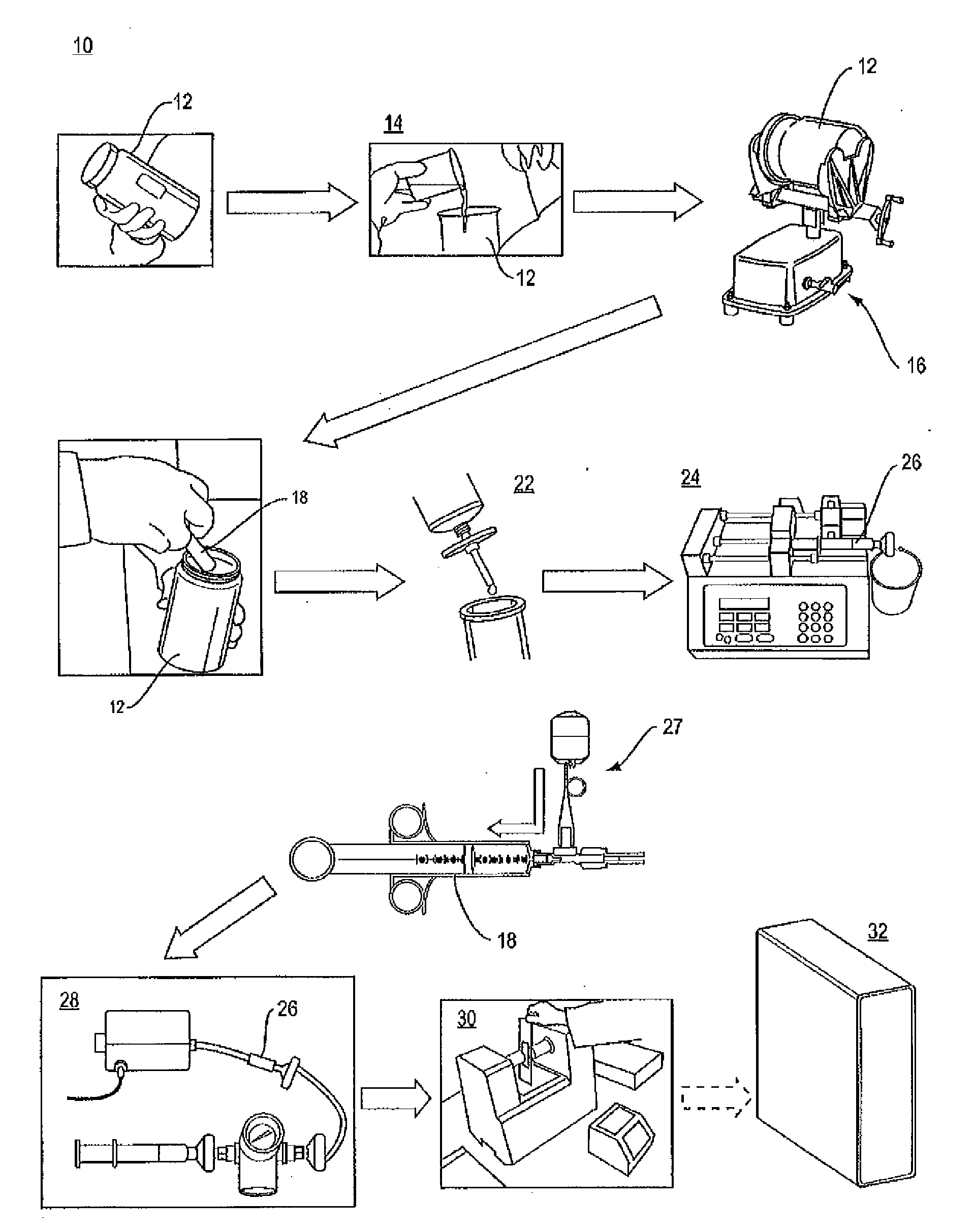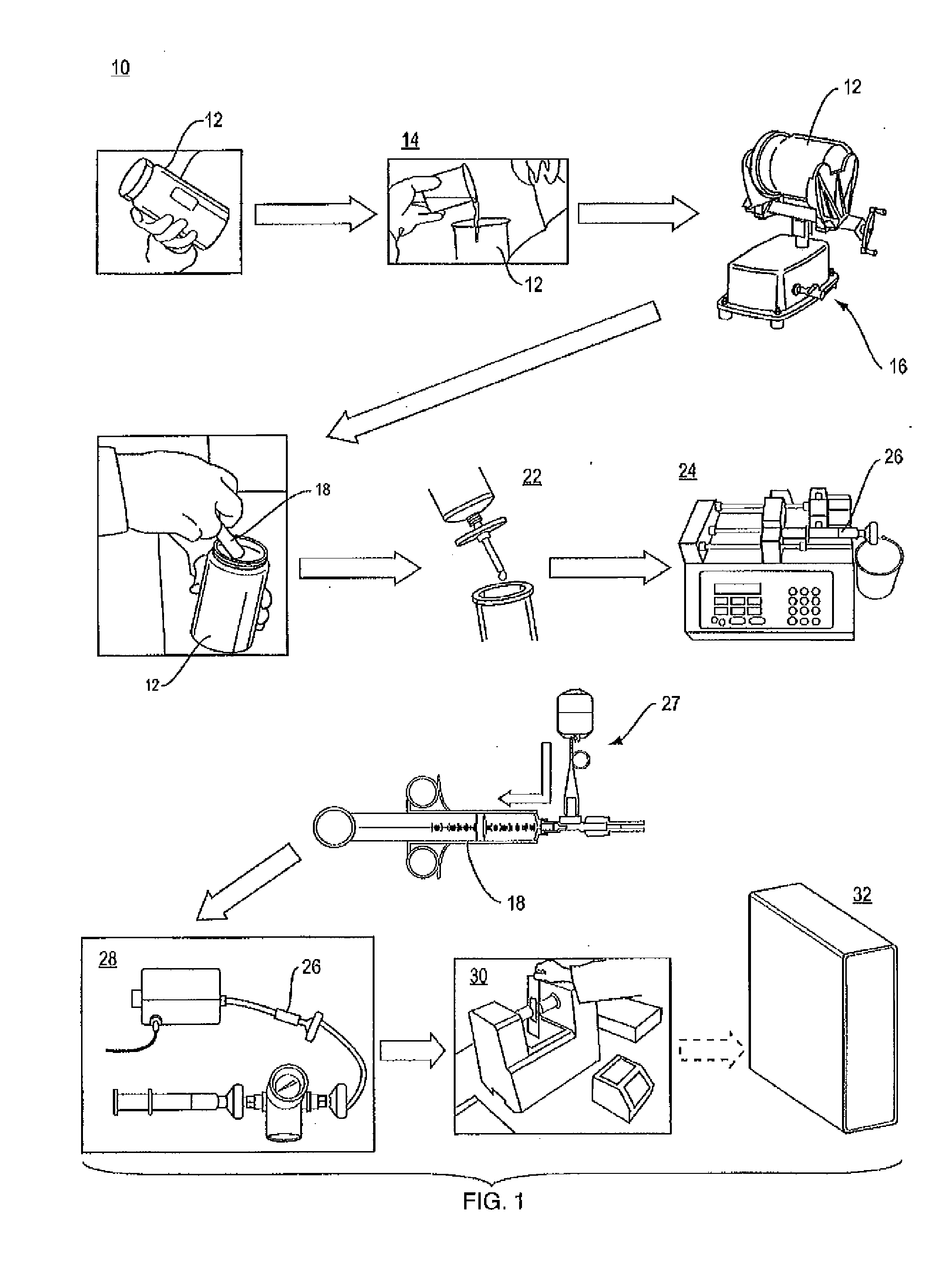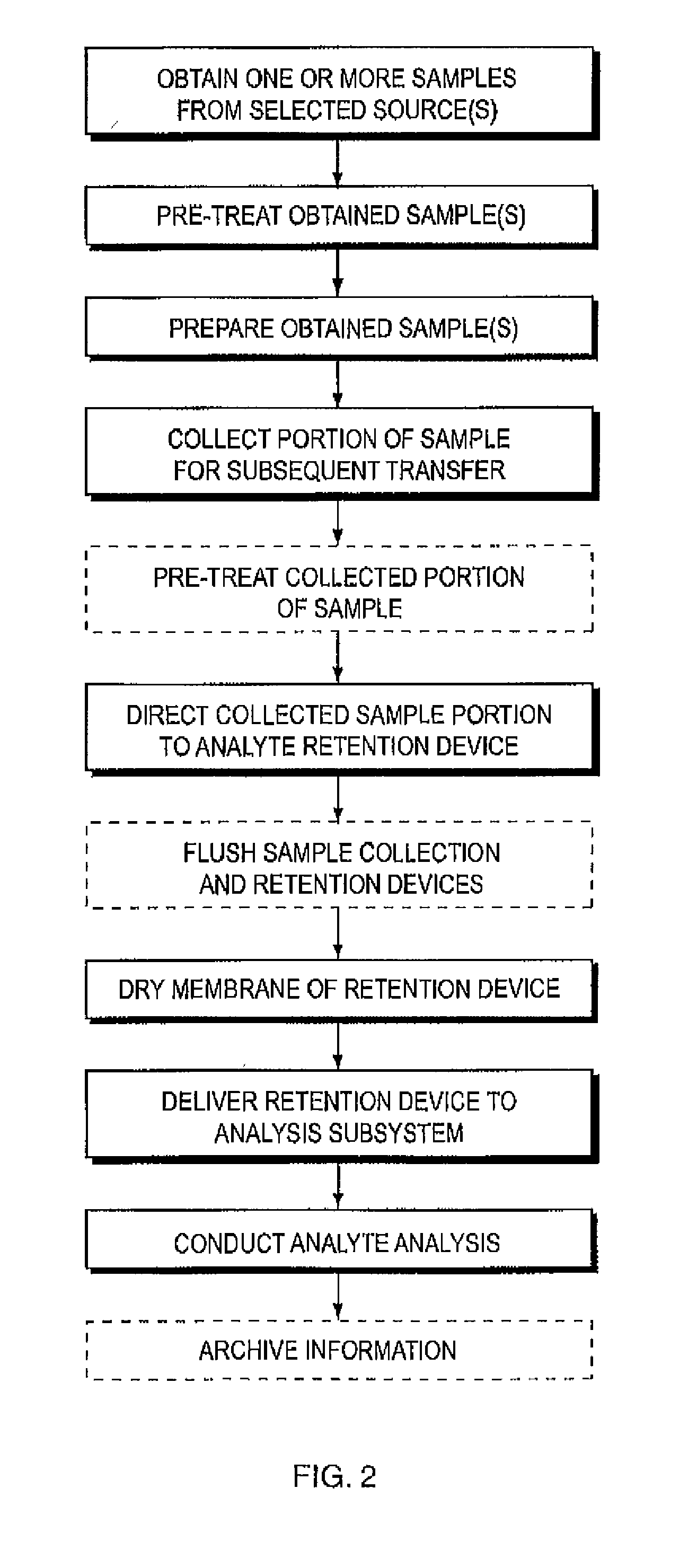Apparatus and method for determining analyte content in a fluid
a fluid and fluid technology, applied in the direction of optical radiation measurement, instruments, spectrometry/spectrophotometry/monochromators, etc., can solve the problems of gc-fid being extremely time-consuming and laborious, affecting the accuracy of fluid content determination, so as to achieve effective retention of accurate and reliable samples
- Summary
- Abstract
- Description
- Claims
- Application Information
AI Technical Summary
Benefits of technology
Problems solved by technology
Method used
Image
Examples
example 1
[0102]A PTFE membrane of thickness 50 .mu.m, nominal pore size 0.45 .mu.m, and diameter 15 mm was placed over a metal support disk of 0.25 mm pores and 12.7 mm diameter. The excess membrane material was wrapped around to the back of the metal support disk. PTFE washers of 7.1 mm inner diameter, 12.7 mm outer diameter, and 0.75 mm thickness were placed on both sides of the membrane and disk (See FIGS. 4 and 5). Approximately 30 psi. of force is applied by hand to press the washers, membrane and disk together; this is henceforth referred to as the supported membrane unit. The supported membrane unit was placed in a 13 mm infrared window holder (Bruker optics). Transmission Fourier Transform infrared (FTIR) spectroscopy was performed on an ABB FTLA 2000 with a liquid nitrogen cooled mercury-cadmium telluride detector interfaced with a computer. A background spectrum was taken as the average of 50 scans. The supported membrane unit was then placed into a stainless steel filter holder fr...
example 2
[0106]The second example was similar to the first example. A supported membrane unit was made from the same materials, a background spectrum taken, and the same filter holder used in the same way. The only difference was that a 2.3 ppm solution of stearic acid in water was tested. Stearic acid was dissolved in methanol and stirred for 20 min. A certain amount of this solution was then added to 1 liter of deionized water and stirred for 20 min to create an even distribution of stearic acid in water. Stearic acid was used as a simulant for Grease. Grease is included in the TOG definition but not TPH.
[0107]The test was performed in the same way as in Example 1. Simply, 10 ml of the stearic acid dispersion in water was syringed through the supported membrane unit and dried in the same manner. However, a small amount of water remained. FIG. 21 shows the results of the test. Stearic acid strongly absorbs at about 1700 cm.sup.−1, the carboxyl absorbance region, and in the hydrocarbon absor...
example 3
[0108]The third example is generally similar to the first two in that a supported membrane unit was made from the same materials and a background spectrum taken. However, in this example, six different samples of six different fluids from real-world sources were run through the analysis system of the present invention, three times for each. In addition, a standard solvent-based EPA 1664 analysis was performed on the same fluid samples to determine the relationship between the results obtained using the present invention and the current standard for oil-in-water detection. FIG. 22 shows the spectra resulting from test results for four of the samples (excluding the samples from the Gulf of Mexico). Further, as can be seen from the table of FIG. 23, which identifies the sources of the six samples, the averaged results obtained using the present invention closely matched the results using the conventional solvent-based test method, wherein the conventional solvent-based method is identi...
PUM
 Login to View More
Login to View More Abstract
Description
Claims
Application Information
 Login to View More
Login to View More - R&D
- Intellectual Property
- Life Sciences
- Materials
- Tech Scout
- Unparalleled Data Quality
- Higher Quality Content
- 60% Fewer Hallucinations
Browse by: Latest US Patents, China's latest patents, Technical Efficacy Thesaurus, Application Domain, Technology Topic, Popular Technical Reports.
© 2025 PatSnap. All rights reserved.Legal|Privacy policy|Modern Slavery Act Transparency Statement|Sitemap|About US| Contact US: help@patsnap.com



